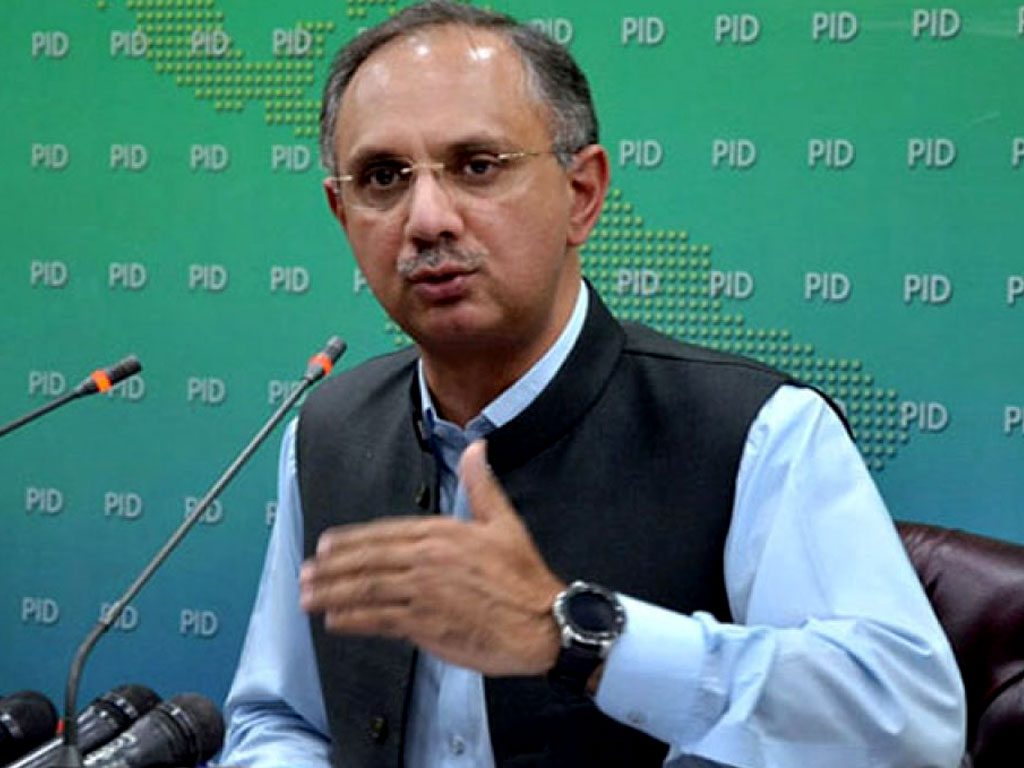
Minister for Power Division Omar Ayub stated on the ninth of Muharram, a public holiday, that the government intends to challenge decisions against Pakistan in the Reko Diq and Karkey cases in the International Centre for Settlement of Investment Disputes (ICSID). He added that he could have held a press conference on Wednesday, the first working day after the Ashura holidays, but he had been directed by Prime Minister Imran Khan to 'apprise the nation of facts' pertaining to (i) the decision to challenge the ICSID decisions against Pakistan which he contended was attributable to the flawed policies of previous administrations; and (ii) withdrawal of the 5th September ordinance relating to Gas Infrastructure Development Cess and allow the Supreme Court to decide the matter after considerable domestic criticism that the ordinance was discriminatory and favoured a few industrial units.
The fine imposed on Pakistan in the Reko Diq and Karkey cases is a total of 7.4 billion dollars - 6.2 billion dollars in the Reko Diq case and 1.2 billion dollars in the Karkey case. This amount is 1.4 billion dollars in excess of the 6 billion dollar loan procured by the country from the International Monetary Fund with extremely stringent conditions and 1.3 billion dollars pledged by the World Bank to Pakistan for the current fiscal year. In effect, if Pakistan's legal challenge to these ICSID decisions fails then it would be safe to assume that the government's acknowledged requirement of 38.6 billion dollars external financing for the current year would be raised to 46 billion dollars.
The legal challenge, as and when launched, would imply additional fees for lawyers, domestic and international, and from a legal perspective must be supported by additional information that was not available during the proceedings that culminated in the court decision to impose a hefty penalty on us. If the same arguments are to be used as expected then the entire exercise would be one of futility. One would hope that the Khan administration understands that to argue, albeit plausibly, that previous administrations were responsible for these flawed decisions is not likely to change the verdict. A better option would have been to seek an out-of-court settlement.
Countries are bound by signed agreements for all times to come which is why this newspaper has always urged sitting governments not to sign agreements with the private sector, local or foreign, in haste and to carefully consider the legal aspects of any deal that would have serious negative implications on the treasury and by extension the people of this country. In recent months, there has also been talk of flawed deals signed with the Independent Power Producers (IPPs) which are also negatively impacting on the treasury as well as on the power consumers.
Today given the poor state of the economy, the Advisor to the Prime Minister on Finance Hafeez Sheikh has reportedly taken the Privatisation Commission to task for delaying the process of privatisation. The reason: the discrepancy in the macroeconomic indicators for last year that were shared with the International Monetary Fund to reach the 12 May staff-level agreement and the actual data released by the government a few weeks ago with the most disturbing being a deficit disparity of 1.7 percent. The advisor on finance, Hafeez Shaikh, intends to meet the shortfall through non-tax revenue, given that tax revenue target is unrealistic as it is, and privatisation appears to be one of the possible options. Shaikh, as privatisation minister, was responsible for successfully privatising more than 30 state enterprises during the Musharraf regime. He is, therefore eminently qualified to kick-start the privatisation process that has been on the back burner for far too long.
